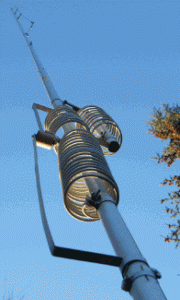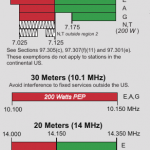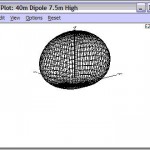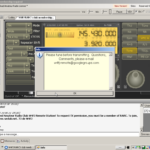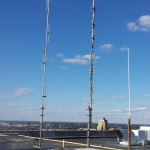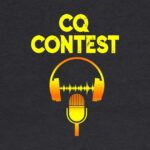Getting an FCC License
Classes Offered
Class Schedules
VE Testing
FCC Licensing
Amateur Radio is rewarding hobby enjoyed by people all over the world. Amateur radio operators or “Hams” enjoy the privilege to experiment with and use a wide range of radio frequencies from hf to Microwaves. With these privileges there are technical and legal responsibilities. All amateur radio operators in the United States must posses a valid FCC licence and operate according to the rules set fourth by the Federal Communication Commission. There are three Amateur radio licence exams Technician, General and Extra each offering increasing privileges but requiring more knowledge. Tests are given by “VE” volunteer examiners which are other hams who have volunteered their time to administer and grade the test on behalf of the FCC.
The Richmond Amateur Radio Club offers classes to assist hams in getting or upgrading their license. We are fortunate here in Richmond to have two active VE teams so there is a testing session almost every month see the Testing Schedule
Classes Offered
Technician:
This is the entry level license for ham radio. Talk around town on a hand-held radio using “repeaters” provided by groups of fellow hams. That’s called “two meters” and “four-forty”. Talk regionally on “six meters” and “ten meters”; when propagation is good you can even get to the Caribbean! Use digital transceivers to talk around the world via the Internet. The test is 35 questions mostly about operating principles, the FCC rules, and enough technical information to connect the radio, pick the frequencies, and operate. This takes 10 weeks of two-hour classes and, depending on the student’s background, lots of study and sample test taking.
General:
The second level license opens up world-wide communications. Talk around the world on most of the popular “HF bands” with as much antenna and power as you can afford! There’s a lot more to learn about electronics so there’s more technical material than in the Technician class. You have to pass the Technician test before you can take the General exam. The test is 35 questions with the operating principles and the FCC rules that fit international communications. This takes 5 weeks of two-hour classes and, depending on the student’s background, lots of study and sample test taking.
Extra:
A license that allows the use of all the ham bands, especially those frequencies used in long-distance contests. It also qualifies you to become a license examiner for all levels. It’s pretty technical. You know your electronics and the formulas by the time you pass this test. The exam is 50 questions dominated by technical content. You must have passed the Technician and General exams to take the Extra test. This takes 3 Saturdays, one in-person demo+hands-on and 3 9am to 4:3pm cram classes.
Morse Code:
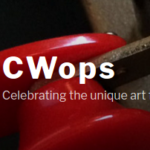 It’s now optional; it’s no longer required to get a General and higher license. Ironically it’s gaining popularity now that it’s optional! One of the club’s CW gurus found the online education at https://cwops.org/. He recommends it.
It’s now optional; it’s no longer required to get a General and higher license. Ironically it’s gaining popularity now that it’s optional! One of the club’s CW gurus found the online education at https://cwops.org/. He recommends it.
NEC Antenna Modeling:
This one-Saturday seminar assumes you have very little or no experience in antenna modeling. During this approximately three hour seminar at a local library we will cover:
- The background of NEC and NEC based antenna modeling
- Antenna geometry in models
- Antenna segments in models
- How to create simple antennas
- How to calculate SWR and impedance values
- How to plot 2D and 3D antenna patterns
- How to use EZNEC (paid program) and 4NEC2 (free program)
- Compare models to actual antenna measurements
Remote-controlled Station Setup & Operations:
This two evening Zoom seminar introduces hams to the remote operation of ham stations from their Windows computer or Android device over the Internet. It focuses on the W4FJ remote station that RARC members can use. It does all modes on HF, VHF, and UHF bands. It covers how to register on RemoteHams, download the RCForb app to a computer or device, and how to get control of the station. It covers setting up for digital modes using fldidi and WJTS-X. Because it depends on demonstrations, Zoom turns out to be the best way to teach it.
D-Star Setup & Operations:
This is a one-Saturday seminar. D-Star digital communications is supported in Richmond by the RARC repeater. Through a “gateway” it connects to other repeaters wherever in the world there is a D-Star repeater installed. With all this function it can be a bear to set up. This class aims so make this setup and operation simpler for the ham. It is taught on one or two Saturday mornings as negotiated at registration between the instructor and the students.
Radio Sport & Contesting 101
• What contesting offers regardless of license class
• What a radio contest is and basic requirements
• Radio Orienteering – Non-contact RadioSport
• High level participation
• Scoring explained
• Equipment, antenna, and logging software considerations – what’s most popular
• Entry categories explained
• Strategies vs Goals
• Logging and scoring
• How to get started – A detailed review of an actual contest’s rules as published
• Live voice contest exercise
• Practicing between contests
• Operating Techniques – Running vs Search & Pounce
Costs to get licensed
The costs vary by license, need for a textbook, etc. As of the Spring of 2023 the typical costs are:
- RARC Tuition = $22; it pays for instructor supplies, hand-outs, club operating costs, and a donation to the hosting church.
- Textbooks = $20 for Tech, $25 for General, $33 for Extra. This all goes to the seller. Sometimes the seller charges shipping as well, see https://rarclubackup.website/license/class-schedules/ form their websites.
- FCC Exam = $0 from the RARC Volunteer Examiners (VEs), $15 from the CATS VEs, see https://rarclubackup.website/ve-testing-choices/.
- FCC License fee = $35. For students 18 and younger the ARRL will reimburse for the fee, see https://www.arrl.org/youth.

